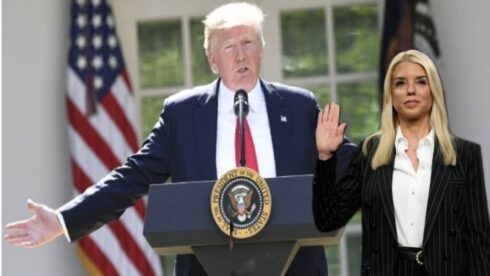U.S. President Donald Trump has announced the creation of a specialized task force to combat what he perceives as a growing “anti-Christian bias” in the nation. The announcement, made during his speech at the National Prayer Breakfast, underscores the administration’s firm stance on safeguarding religious freedoms. The event, a gathering of faith leaders, lawmakers, and public figures, provided a significant platform for the President to highlight the urgency of protecting Christian communities from perceived discrimination.
The task force will be responsible for investigating and addressing instances of bias against Christian groups within federal agencies and across various societal sectors. President Donald Trump emphasized that religious liberties are foundational to American democracy and must be defended against any form of infringement. By integrating faith-based issues into his administration’s agenda, the President aims to create a climate where individuals can freely practice their beliefs without fear of discrimination or governmental interference.
Attorney General Pam Bondi Appointed to Lead ‘Anti-Christian Bias’ Task Force
President Donald Trump has appointed Attorney General Pam Bondi to head the newly formed task force dedicated to addressing alleged anti-Christian bias in federal agencies and society. Bondi, recognized for her strong advocacy for religious liberties, will spearhead investigations into claims of discrimination against Christian communities. Her leadership role includes ensuring the strict enforcement of existing laws designed to protect religious groups and promoting a culture of respect for Christian beliefs across government institutions.
Under Bondi’s leadership, the task force will also focus on identifying and rectifying unlawful practices that may marginalize religious communities. It aims to recommend comprehensive policy changes to foster inclusivity and protect religious freedoms. Furthermore, the task force will extend legal support to victims of religious discrimination and collaborate with civil society organizations to enhance awareness of religious rights. By taking a proactive approach, the task force hopes to reinforce religious liberties as a fundamental pillar of American democracy.
Donald Trump: Context Behind the Initiative
The creation of the task force comes amidst heightened tensions over religious issues in the United States. Recent surveys have indicated a perceived increase in societal hostility toward Christian groups, prompting calls for government intervention.
President Donald Trump‘s administration has previously demonstrated a commitment to religious causes, including executive orders that expanded protections for faith-based organizations. Analysts view the latest move as part of a broader strategy to solidify support among evangelical and conservative Christian voters.
Reactions from Religious and Civil Rights Groups
The task force’s formation has been met with both praise and criticism. Christian advocacy groups have lauded the move as a necessary step to safeguard their constitutional rights. Many believe that Christians have faced growing marginalization in recent years and see the task force as a beacon of hope.
Conversely, civil rights organizations have expressed concerns that the task force might undermine the separation of church and state. Critics argue that prioritizing one religious group could lead to further division and exclusion of other faith communities.
Potential Implications for Federal Policies
The task force’s work could significantly impact federal policies and practices. Legal experts predict that it may lead to increased scrutiny of agencies such as the Internal Revenue Service (IRS) and the Department of Justice, which have faced accusations of bias against religious groups in the past.
Moreover, the task force’s findings could influence future legislation aimed at strengthening religious freedom protections. As the initiative unfolds, it will be crucial to monitor how it balances the need to protect religious liberties while upholding constitutional principles.
What This Means for America
As the task force begins its work, many questions remain unanswered. Will it successfully address the concerns of Christian communities without alienating other religious groups? Can it navigate the delicate balance between religious freedom and secular governance?
What is clear is that President Donald Trump‘s initiative has sparked a national conversation about the role of faith in American public life. As the task force moves forward, its actions and outcomes will likely shape the country’s approach to religious freedom for years to come.














